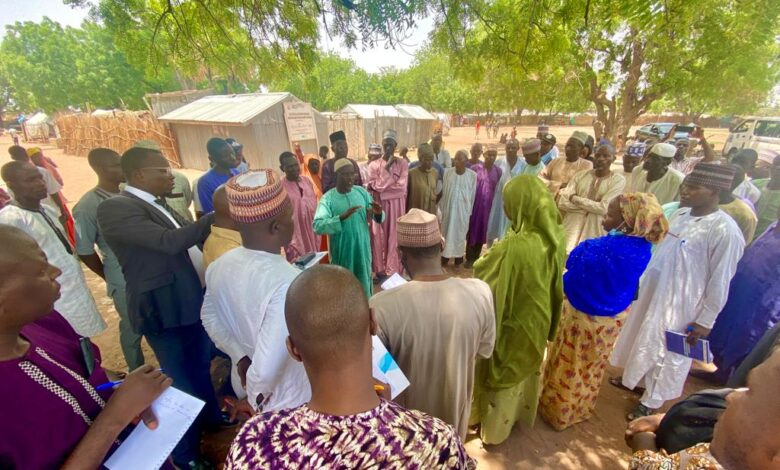Community Mobilisation, Sensitisation Key To Successful Transitional Justice Processes In Northeast Nigeria – Expert
According to a senior human rights adviser, Hilary Ogbonna, the transitional justice project stands on three pillars: community mobilisation and sensitisation, transitional justice mechanisms, and reconciliation and reintegration.

Community mobilisation and sensitisation are key to successful reconciliation, reintegration and transitional justice in conflict-affected areas of northeastern Nigeria, as hundreds of ex-Boko Haram fighters go through rehabilitation, an expert said.
Hilary Ogbonna, the Senior Human Rights Adviser at the National Human Rights Commission (NHRC) said on Monday, May 23, it was essential to secure community cohesion to fast track the reintegration of returning community members that have been displaced, and repentant Boko Haram fighters.
Ogbona spoke at a 2-day training for media practitioners on transitional justice and reconciliation in Adamawa State, Northeast Nigeria.
According to him, the transitional justice project stands on three pillars: community mobilisation and sensitisation, transitional justice mechanisms, and reconciliation and reintegration.
“These three pillars are very, very critical to the next phase of government intervention in the northeast region of Nigeria,” he said.
Ogbonna added that it was to this end that the NHRC had recognised the role of media practitioners who can promote the idea of reconciliation, reintegration and transitional justice in Borno, Adamawa and Yobe states.
“This training is facilitated by the need for us to have media partners in the media community in the northeast and generally across Nigeria, that will help in putting the message out there on the need for communities to embrace reconciliation and also to explain the concept of transitional justice to community members.”
Transitional justice processes in Nigeria
According to the UN, transitional justice is an approach to massive human rights violations that redress victims and creates opportunities for the transformation of the political systems, conflicts, and other conditions that may have been at the root of the abuses.
The Nigerian government had, in 2016, launched a deradicalisation programme known as Operation Safe Corridor (OSC) that allows low-risk Boko Haram members who surrender to become rehabilitated and reintegrated.
Hundreds of former militants have successfully passed through this programme in various batches, some ending up in Internally Displaced People’s (IDP) camps.
Over the years, transitional justice has been utilised as a post-conflict tool for peacekeeping and peacebuilding efforts around the world. These programmes generally reassure former combatants that they will be reintegrated and not punished, but the processes in Nigeria have come under criticism.
An OSC alumnus based in Maiduguri displacement camp revealed that they faced subtle stigmatisation, even though they still interact freely with other displaced persons, but the story is different outside of IDP camps.
In Gwoza, Bama, Gamboru, Ngala and Dikwa LGAs of Borno State, Northeast Nigeria, two dozen ex-militants were rejected by officials and residents, which led some of those who returned to go back to the forest to rejoin the insurgents.
HumAngle has reported how transitional justice processes have worked in other African countries. For instance, in Rwanda, where there were gross human rights violations in what is described as the world’s fastest genocide, transitional justice processes included creating 11,000 community courts known as Gacaca to try lower-level genocide suspects.
The training had in attendance media practitioners from conflict-affected areas of Borno, Adamawa and Yobe states, including the Federal Capital Territory (FCT), who made commitments to promote reconciliation among community members to aid the transitional justice process in Nigeria.
Support Our Journalism
There are millions of ordinary people affected by conflict in Africa whose stories are missing in the mainstream media. HumAngle is determined to tell those challenging and under-reported stories, hoping that the people impacted by these conflicts will find the safety and security they deserve.
To ensure that we continue to provide public service coverage, we have a small favour to ask you. We want you to be part of our journalistic endeavour by contributing a token to us.
Your donation will further promote a robust, free, and independent media.
Donate HereStay Closer To The Stories That Matter




